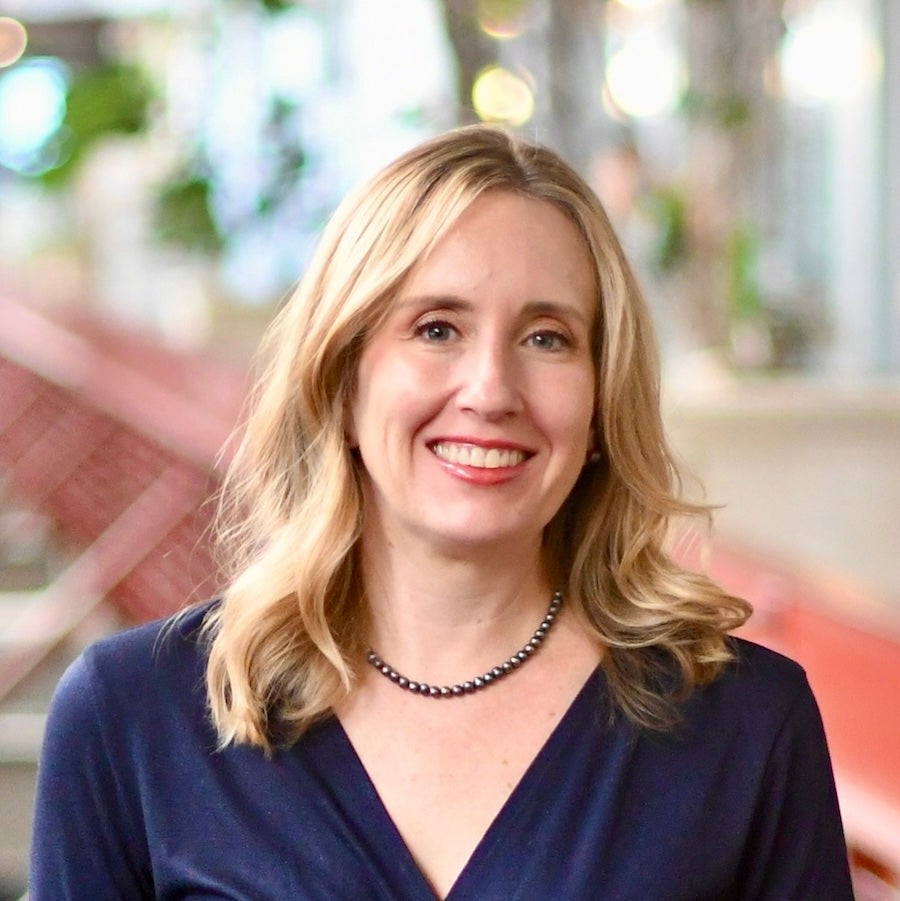Cynthia Reinhart-King is a pioneer in cellular mechanobiology, using engineering principles to understand the role of mechanics in cancer, atherosclerosis, and wound healing. Her lab has made multiple fundamental discoveries on the role of cellular forces and tissue mechanical properties in disease progression. As examples, her studies have implicated cellular force as a biomarker of cancer metastasis and as a key mediator of vascular integrity in both large arteries and capillaries. These findings are suggesting alternative strategies to treat disease by targeting mechanical-mediators within cells and tissues.
Dr. Reinhart-King is a fellow of the Biomedical Engineering Society (BMES), the American Institute for Medical and Biological Engineering (AIMBE), and the International Academy of Medical and Biological Engineering (IAMBE). She was awarded both the Rita Schaffer Young Investigator Award and the inaugural Mid-Career Award from the Biomedical Engineering Society. She has also won an NSF CAREER Award and the Vanderbilt Chancellor’s Award for Research. Her lab has been funded by grants and awards from the National Institutes of Health, the National Science Foundation, American Heart Association, W.M. Keck Foundation, and American Federation for Aging Research.
Dr. Reinhart-King also has a stellar record of service and teaching. She currently serves as the President of the Biomedical Engineering Society, and she previously served as BMES Secretary, an elected Board Member, and National Meeting Program Chair. She served as a standing member of the NIH CMT study section panel, an elected Board Member of AIMBE, and Chair of the Diversity and Inclusion Committee of AIMBE. She won the Sonny Yau ‘72 Excellence in Teaching Award, a Cook Award for “contributions towards improving the climate for women at Cornell,” the Zellman Warhaft Commitment to Diversity Award from the Cornell College of Engineering, and the Edward J. White Service Award from the Vanderbilt University School of Engineering. She was an inaugural New Voices Fellow of the National Academies of Science, Engineering and Medicine. She has served on multiple editorial boards, including her current service as an editor for Science Advances and Current Opinion in Biomedical Engineering.
Prior to joining the Rice faculty in 2024, Dr. Reinhart-King served on the faculties of the Biomedical Engineering Department at Cornell (2008-2016), earning tenure in 2013, and the Departments of Biomedical Engineering and Cell and Developmental Biology at Vanderbilt University (2017-2024) where she was awarded the rank of University Distinguished Professor, the highest rank for faculty at Vanderbilt. While at Vanderbilt, she served as the Director of Graduate Studies (2017-2022), Senior Associate Dean for Research (2022-2024), Director of the Center on Mechanobiology (2020-2024), a member of the Vanderbilt-Ingram Cancer Center Leadership Team, and an elected Faculty Senator.
Research Statement
The human body is much more than just a set of genes and proteins. We know now that disease can be promoted by factors beyond genetics: mechanical forces that exist within cells and tissues can determine cell health. The field of mechanobiology is the union of the two more traditional fields of cell and molecular biology and mechanics. While the study of the mechanical properties of cells dates back several decades, Dr. Reinhart-King’s major contribution has been linking cell and matrix mechanics to disease and identifying ways to therapeutically intervene. Applying mechanobiology to medicine (mechanomedicine) offers the ability to target disease based on the manipulation of the mechanical properties of molecules, cells and tissues, taking medicine into a new frontier. Work in the Reinhart-King lab has focused primarily (although not exclusively) on two specific disease states: cancer and atherosclerosis, the two leading causes of death in the US.
The Reinhart-King Lab seeks to understand how physical forces control the formation and disruption of tissues. Lab members use tools from biomaterials, mechanics, microfabrication, and cell and molecular biology to understand the biological forces driving tissue health and disease. Their work spans the molecular, cellular and tissue scales, and they develop and integrate tissue-engineered in vitro models, murine models, and analysis of patient samples to understand the role of the extracellular matrix in cell function. Their research includes elements of fundamental basic sciences rooted in biophysics as well as translational aspects focused on disease-specific pathways. They have published this work in numerous high impact journals including Science Translational Medicine, Nature Communications, PNAS, and Science Advances, and the work has been highly cited.
The lab environment focuses on working collaboratively across engineering, basic science, and medicine to tackle big questions within mechanobiology and mechanomedicine. Trainees in the group are taught a broad range of techniques that span length scales and connect bench experiments to patient indicators and outcomes.
Current projects in the lab include defining the role of cellular metabolism in cell adhesion and migration (a timely focus given the surge of metabolic inhibitors in the pharmaceutical pipeline), the connection between diabetes and cancer with a focus on the role of sugars, the mechanical and chemical factors mediating angiogenesis, and the role of the extracellular matrix in atherosclerosis progression.

